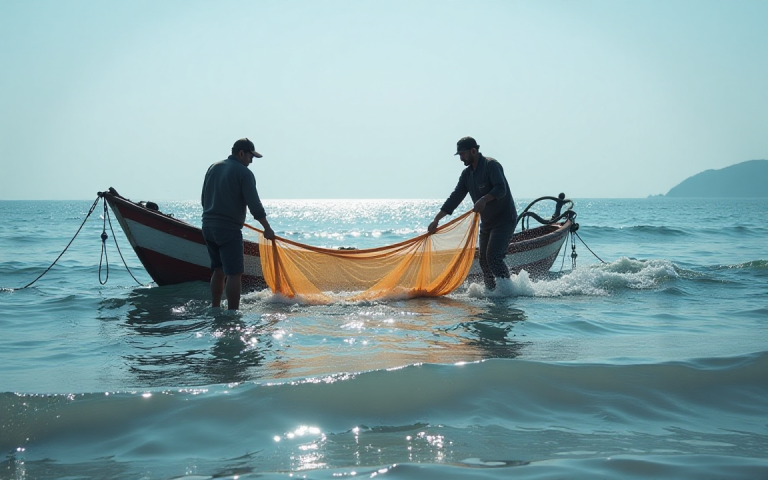In a move aimed at bolstering marine conservation efforts, the British government announced on Monday its intention to broaden the prohibition on bottom trawling, a destructive fishing practice that severely impacts seabed ecosystems.
The move gets public support
This decision comes amid growing concern over the health of the world’s oceans, with prominent figures such as the renowned naturalist Sir David Attenborough and Prince William passionately advocating for immediate and decisive action, according to a Reuters report.
Both have publicly urged world leaders and governments to implement stricter regulations and safeguard marine biodiversity for future generations.
Bottom trawling, which involves dragging heavy nets across the seafloor, is known to cause extensive damage to sensitive habitats, including coral reefs and sponge grounds, disrupting marine life and releasing significant amounts of stored carbon.
The government’s announcement reflects an increasing awareness of the interconnectedness of ocean health and the broader environmental crisis, signaling a commitment to stronger measures to combat the threats facing the planet’s marine environments.
The government announced the plan, pending consultation with marine and fisheries stakeholders, to prohibit bottom trawling.
Safeguarding marine ecosystems
This ban would apply to approximately 30,000 square kilometers (11,600 square miles) of English waters, encompassing 41 Marine Protected Areas, according to the report.
The initiative further aims to safeguard crucial marine ecosystems and sustain species, including lobster, clams, soft corals, and langoustines.
This action will provide further protection beyond the existing 18,000 square kilometers of English seabed already under a ban, the government said.
“Bottom trawling is damaging our precious marine wildlife and habitats,” Environment Minister Steve Reed said in a statement.
Without urgent action, our oceans will be irreversibly destroyed.
Global implications and UN conference
The proposal has been unveiled at a significant moment, coinciding with the commencement of this week’s United Nations Ocean Conference, a critical international gathering being held in France.
This conference serves as a pivotal platform for global leaders and stakeholders to deliberate and work towards securing a comprehensive treaty.
The primary objective of this treaty is to establish robust mechanisms for the protection of the world’s oceans and seabeds.
These vital marine ecosystems face escalating threats stemming from various human activities, most notably the pervasive issue of overfishing.
The treaty aims to address this, as well as other harmful practices, by implementing internationally binding regulations and conservation measures to ensure the long-term health and sustainability of our oceans.
Ahead of the UN conference in Monaco, Prince William, the elder son and heir to King Charles, urged political and business figures on Sunday to take action “while we still have the chance.”
Last month saw the release of “Ocean,” David Attenborough’s newest documentary addressing the same issue.
The renowned broadcaster has expressed his horror at humanity’s destruction of “the deep ocean floor,” describing it as “unspeakably awful.”
Attenborough told William in an interview, which was released by the prince’s office on Saturday:
If you did anything remotely like it on land, everybody would be up in arms.
The post UK government plans to extend ban on bottom trawling in English seas appeared first on Invezz

